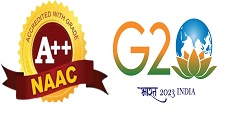CENTRAL SECTOR SCHEME
Central Sector Scheme of Pharmacovigilance of Ayurveda, Siddha, Unani and Homoeopathy Drugs
The Ministry of AYUSH has introduced new Central Sector scheme for promoting pharmacovigilance of Ayurveda, Siddha, Unani and
Homoeopathy (ASU&H) Drugs. Prime objective of the scheme is to
develop the culture of documenting adverse effects and undertake
safety monitoring of Ayurveda, Siddha, Unani and Homoeopathy drugs
and surveillance of misleading advertisements appearing in the print
and electronic media.
The scheme intends to facilitate the establishment of three-tier
network of National Pharmacovigilance Centre (NPvCC), Intermediary
Pharmacovigilance Centres (IPvCCs) and Peripheral Pharmacovigilance
Centres (PPvCC). All India Institute of Ayurveda, New Delhi, has
been designated as National Pharmacovigilance Centre. In the initial
phase of implementation, five National Institutes of AYUSH are
designated as the Intermediary Pharmacovigilance Centres and
forty-two (42) institutions of AYUSH having clinical facilities as
Peripheral Pharmacovigilance Centres. It is intended to have more
such centres across the country and achieve the target of 100
peripheral pharmacovigilance centres by 2020. Representatives of
Central Drug Standards Control Organisation as the national drug
regulatory authority and the Indian Pharmacopoeia Commission being
the WHO Collaborating Centre for Pharmacovigilance in the country
are associated in the initiative as mentor and guide.
Pharmacovigilance is more than spontaneous reporting alone and
the evaluation of medicines is more than pharmacovigilance. It is
the branch dealing with adverse drug reactions (ADRs), their
recognition, and reporting. ADR is defined by the World Health
Organization (WHO) as a response to a drug that is noxious,
unintended, and which occurs at doses normally used in man for
prophylaxis, diagnosis or therapy of disease or for the
modification of a physiological function. Pharmacovigilance is
defined by the WHO as a science, with activities that relate to the
detection, assessment, understanding, and prevention of adverse
effects or any other drug-related problems.
The common myth regarding herbal medicines is that these medicines
are completely safe and can therefore be safely consumed by the
patient on his/her own, without a physician’s prescription.
This belief has led to large-scale self-medication by people all
over the world, often leading to disappointing end-results, side
effects, or unwanted aftereffects. Hence, AYUSH practitioners and
consumers now need to be vigilant about the safety monitoring of
drugs in the interest of Public Health.
Pharmacovigilance initiative will facilitate detection of
potentially unsafe ASU&H medicines and misleading advertisements
for taking regulatory action against them. The Standing Finance
Committee (SFC) chaired by Secretary (AYUSH) approved the scheme
on November 1, 2017 and subsequently it was rolled out for
implementation in the country near the end of financial year 2017-18.
For any further queries and reporting of ADR or misleading advertisements:
Contact Us
The Coordinator, National Pharmacovigilance Centre
All India Institute of Ayurveda, SaritaVihar,
New Delhi – 110 076
Email: pharmacovigilanceayush@gmail.com



